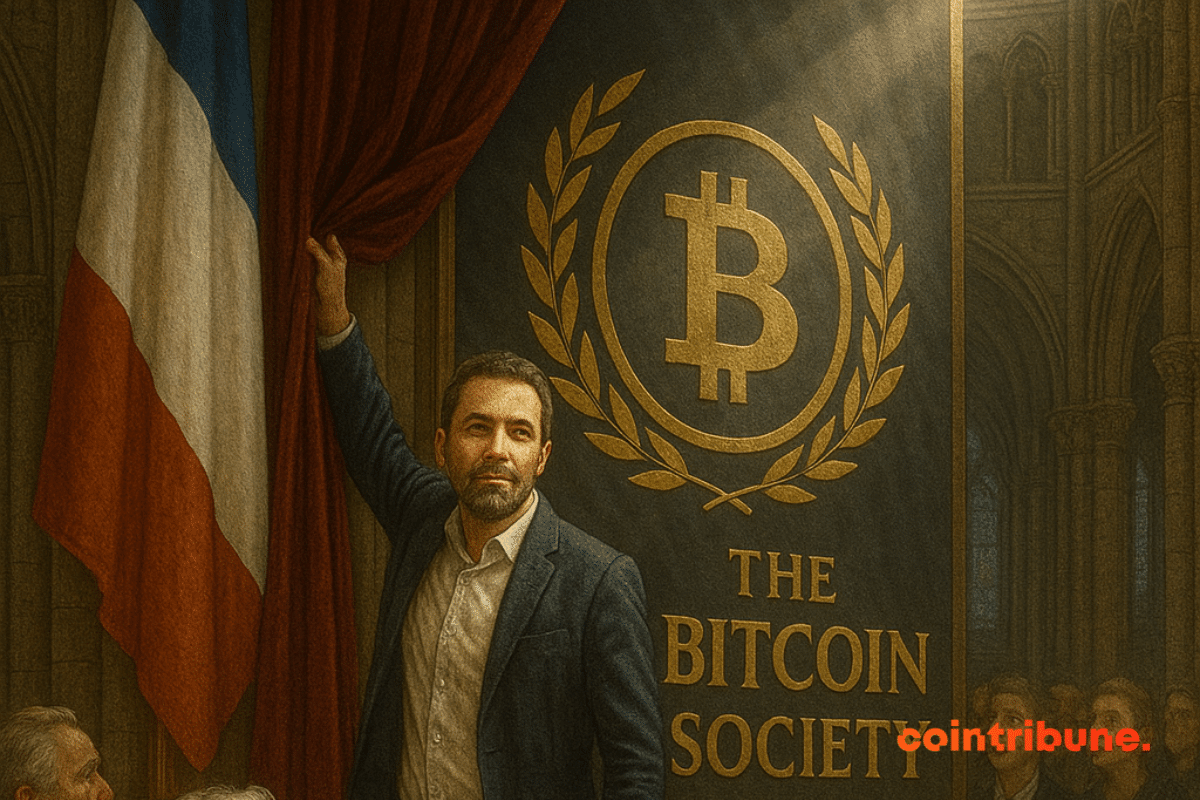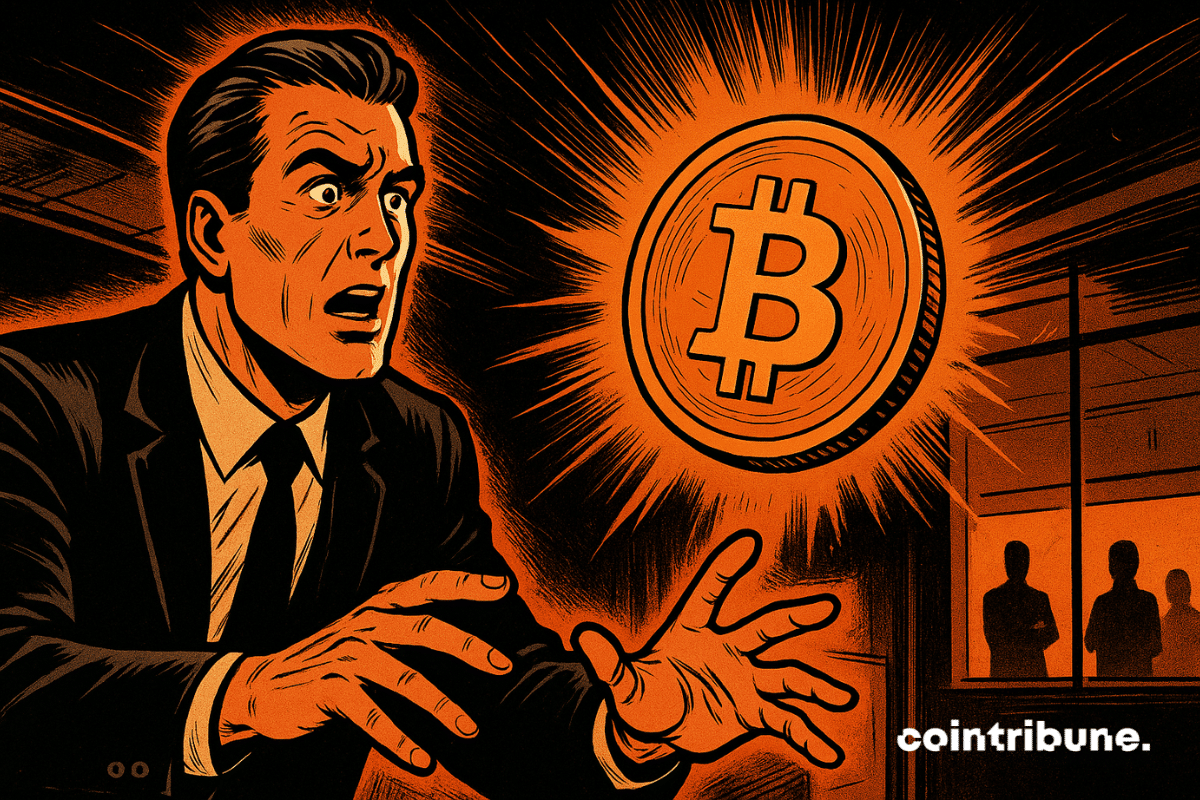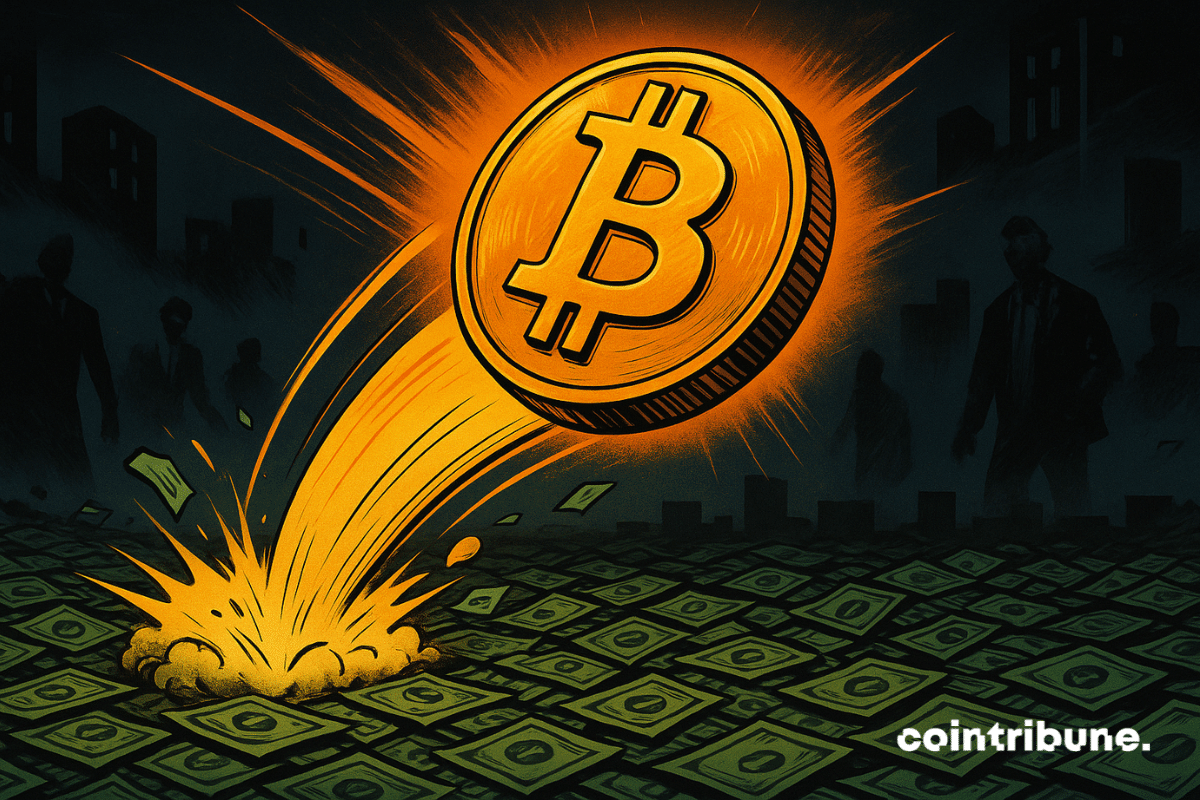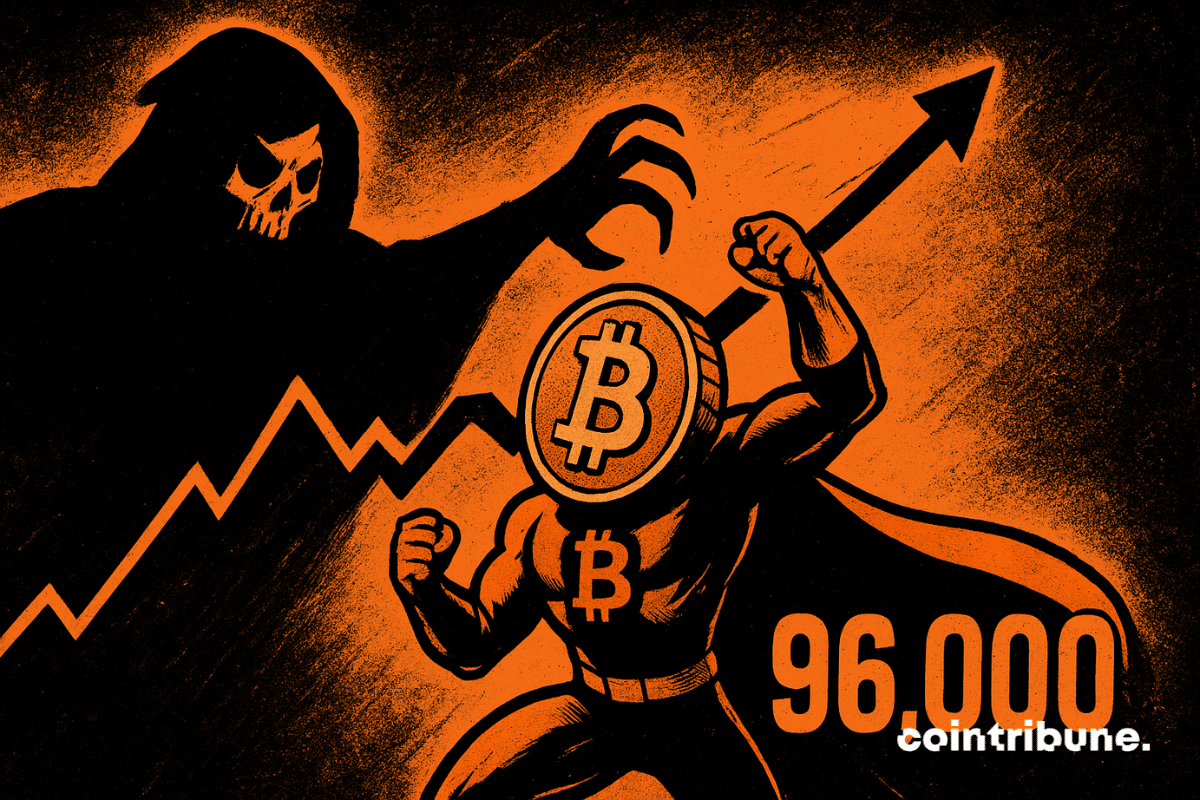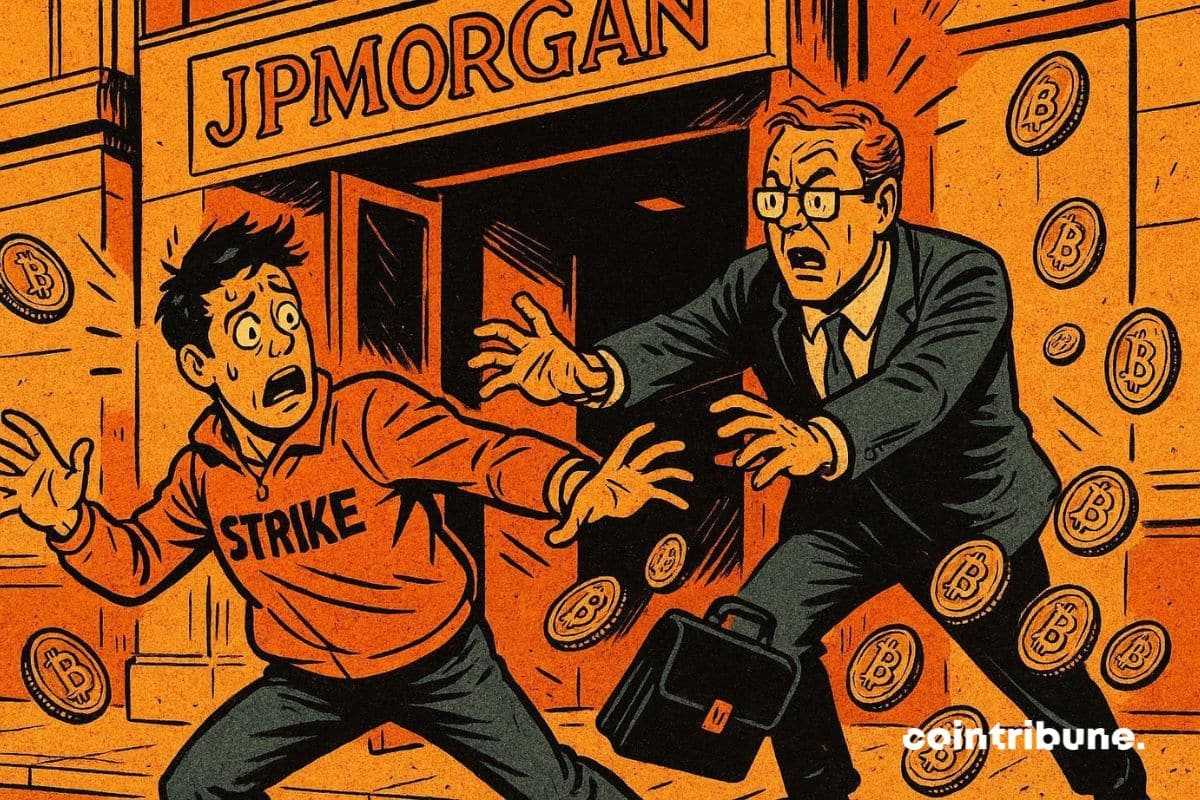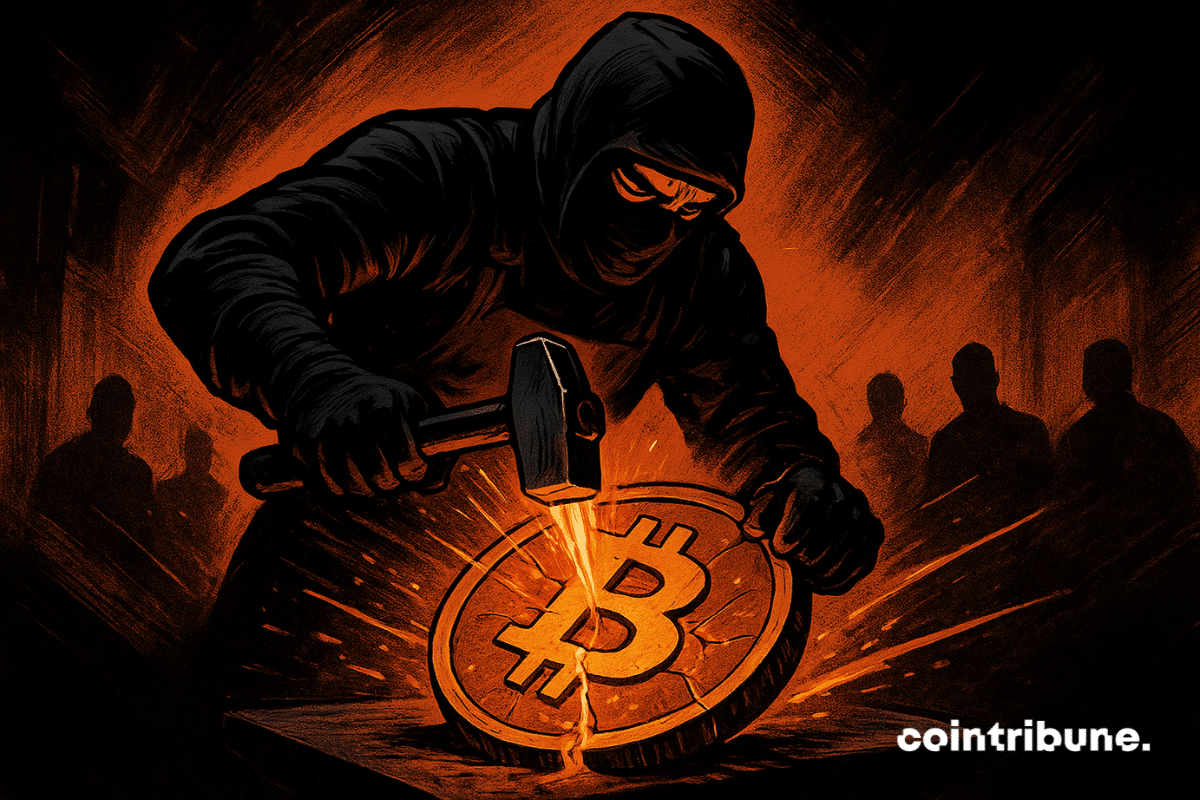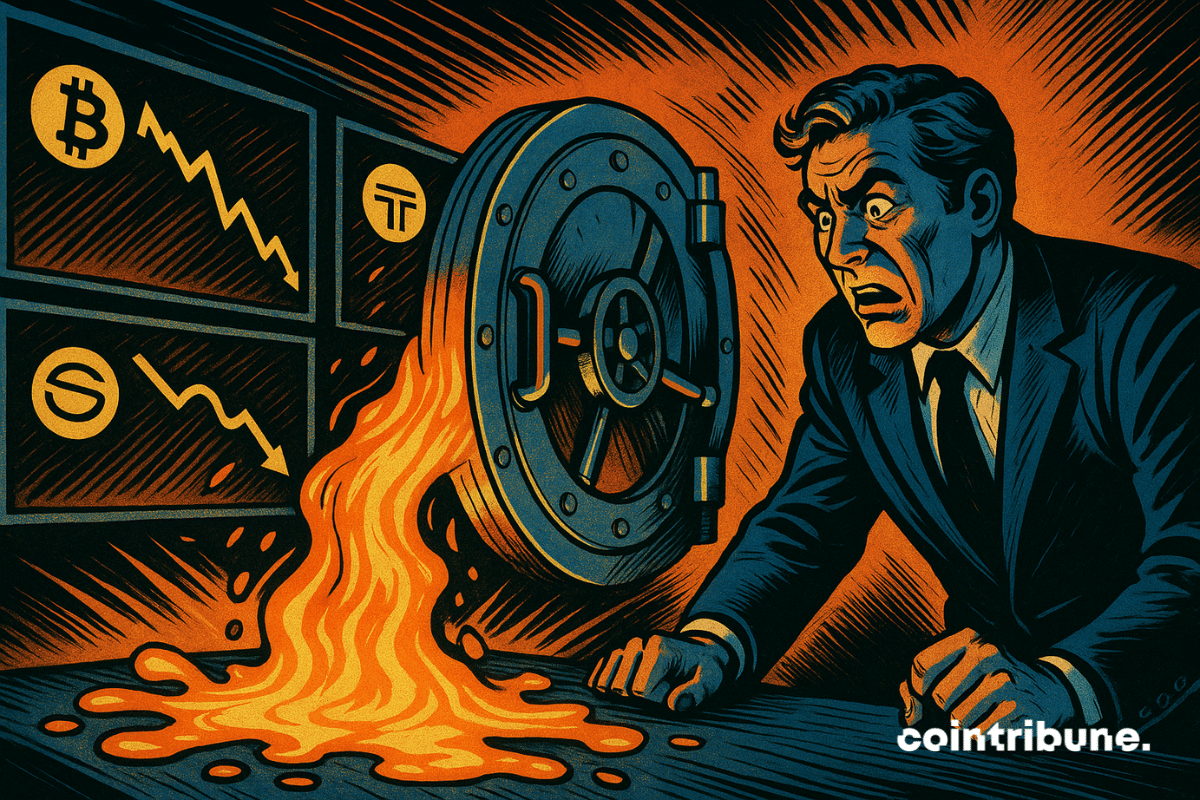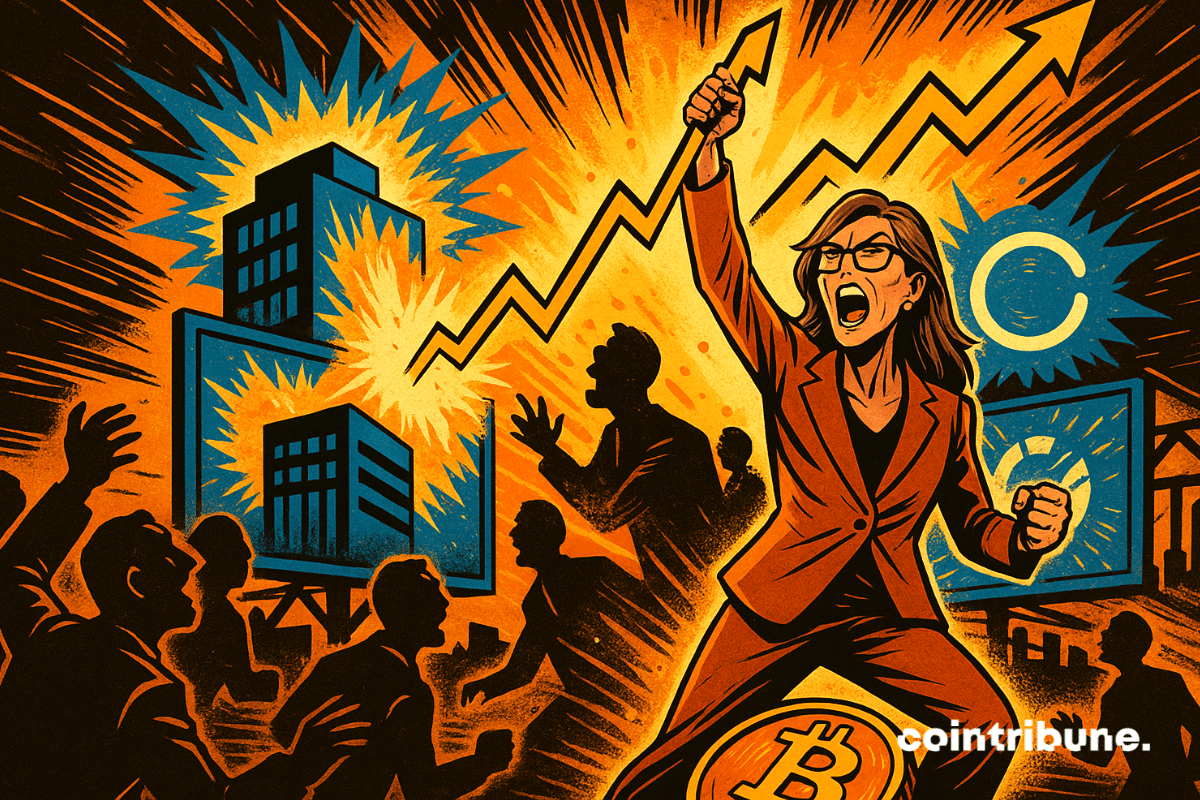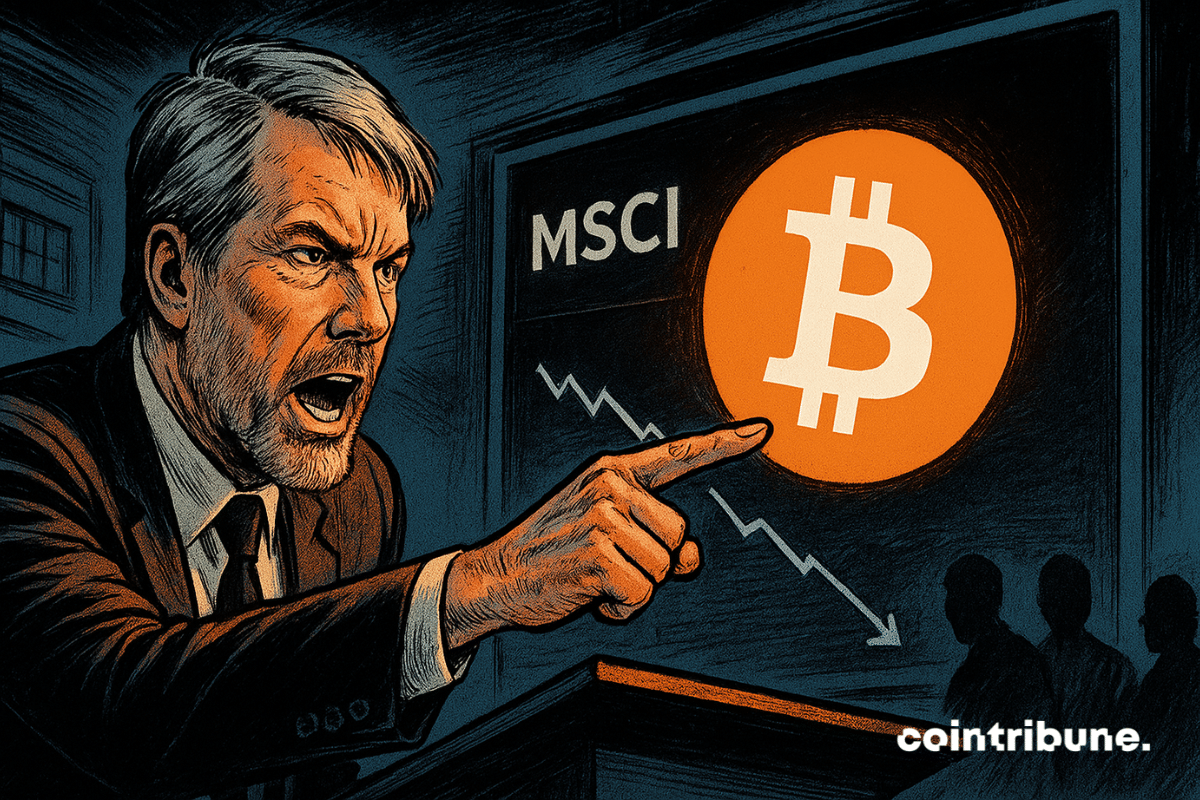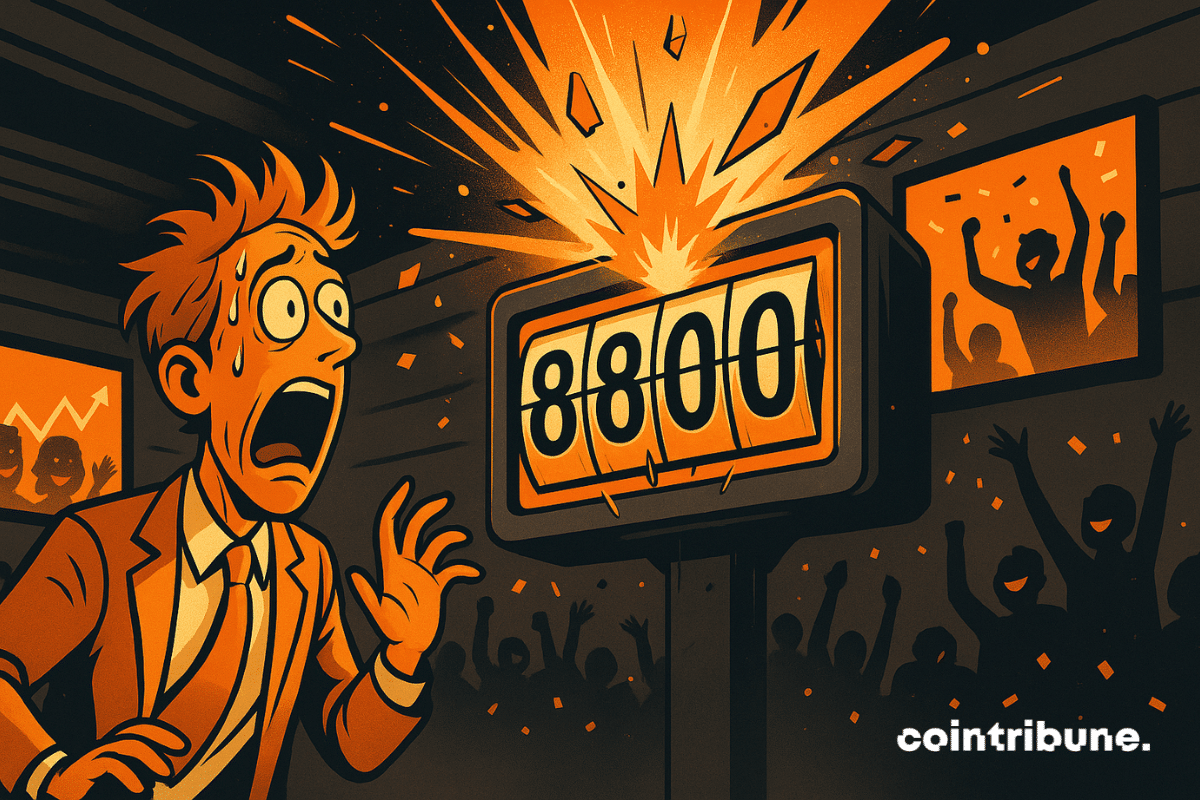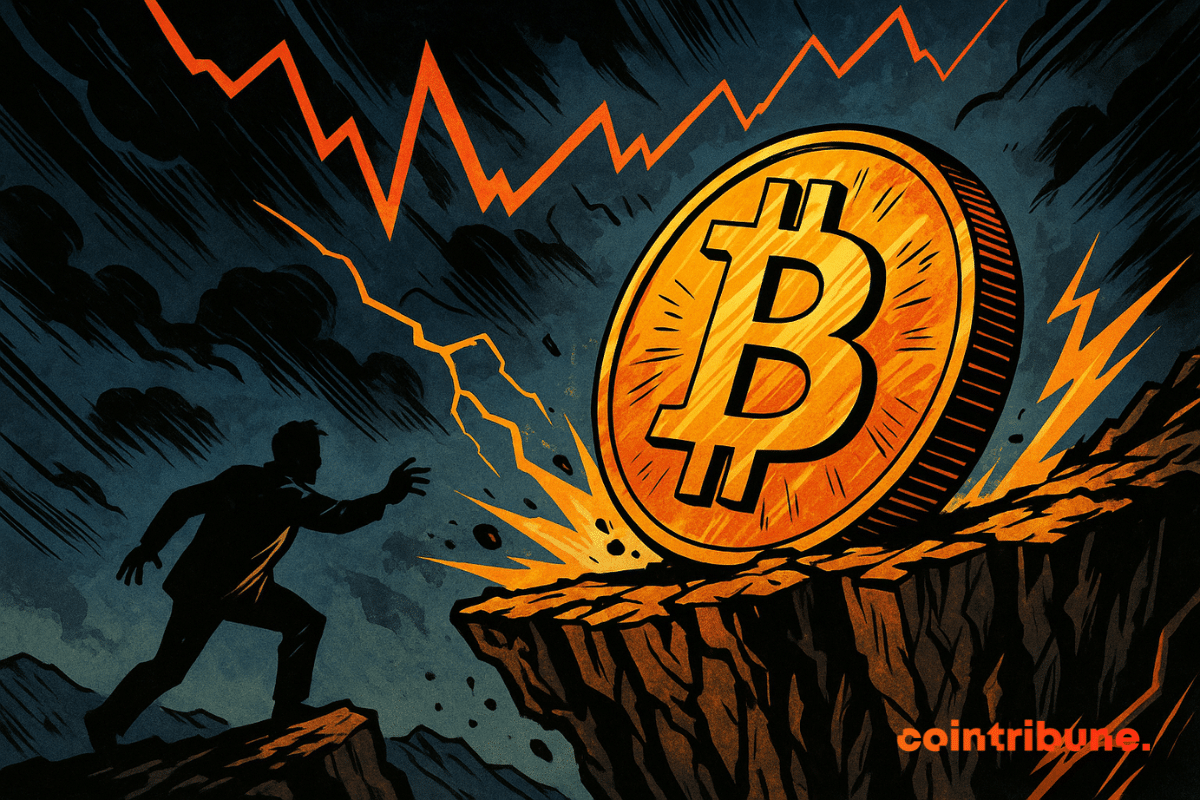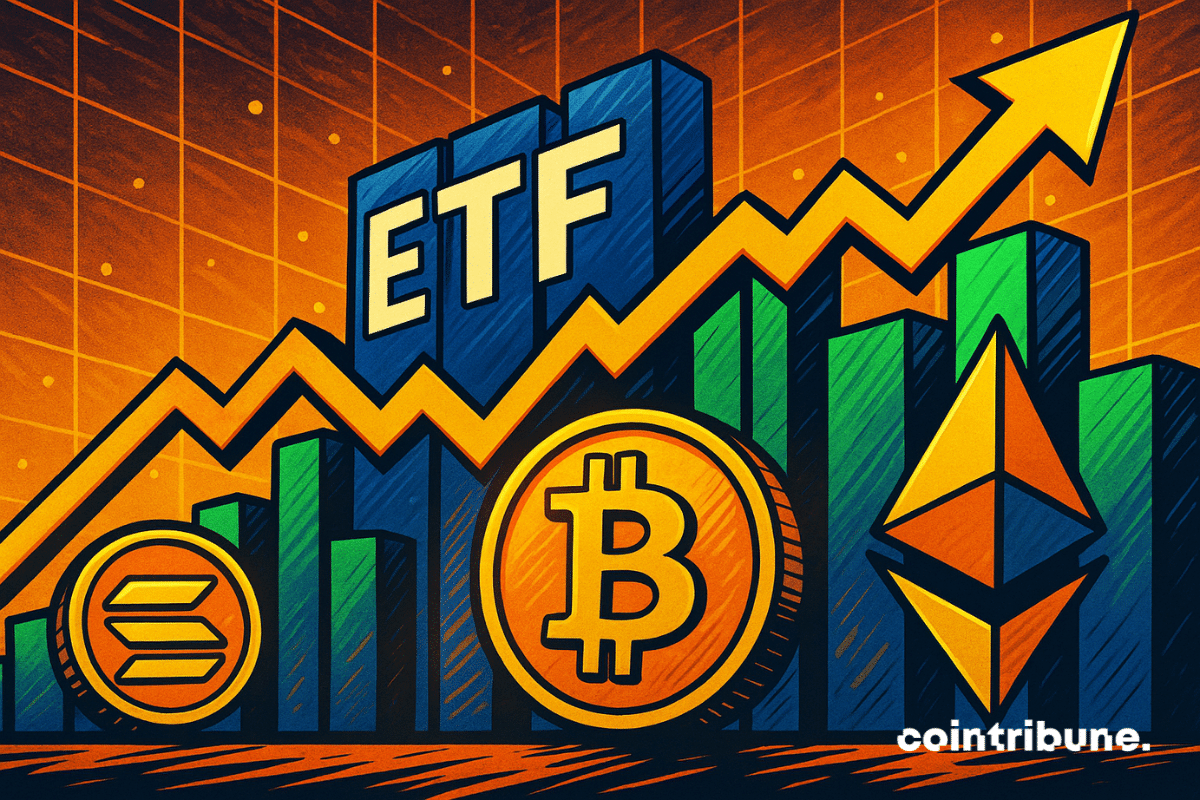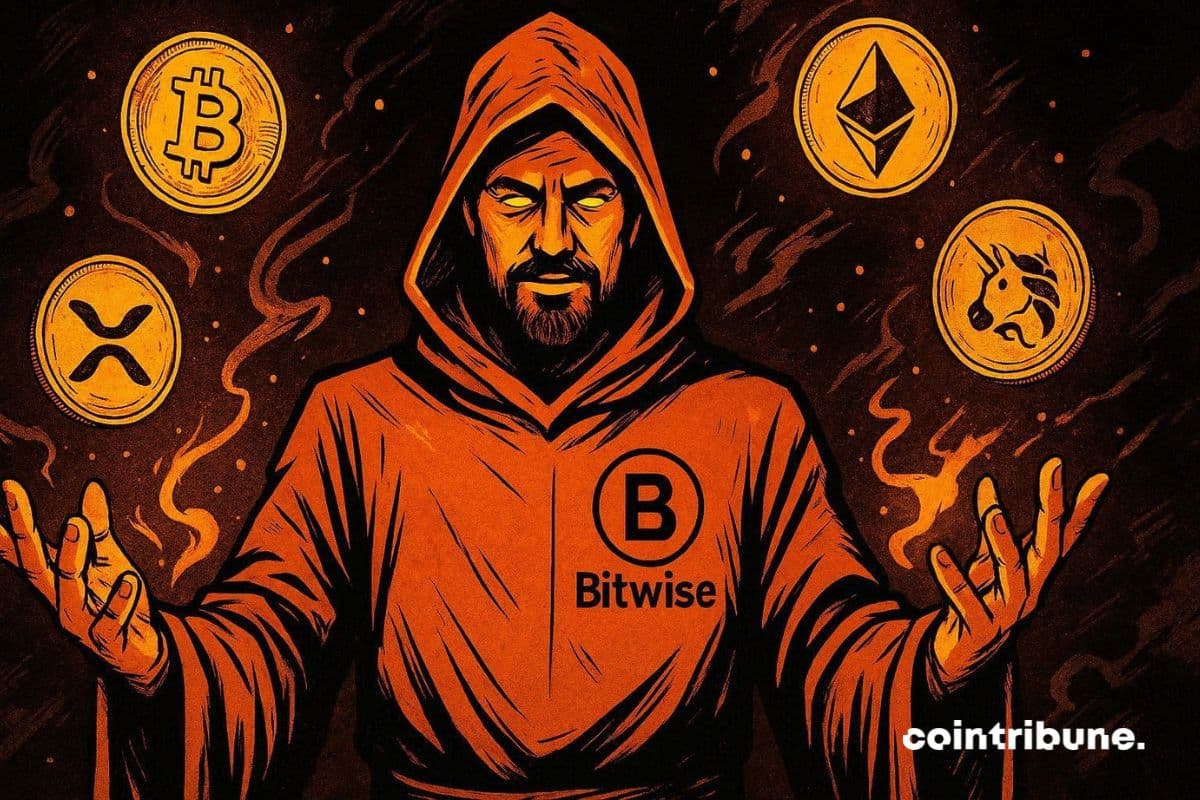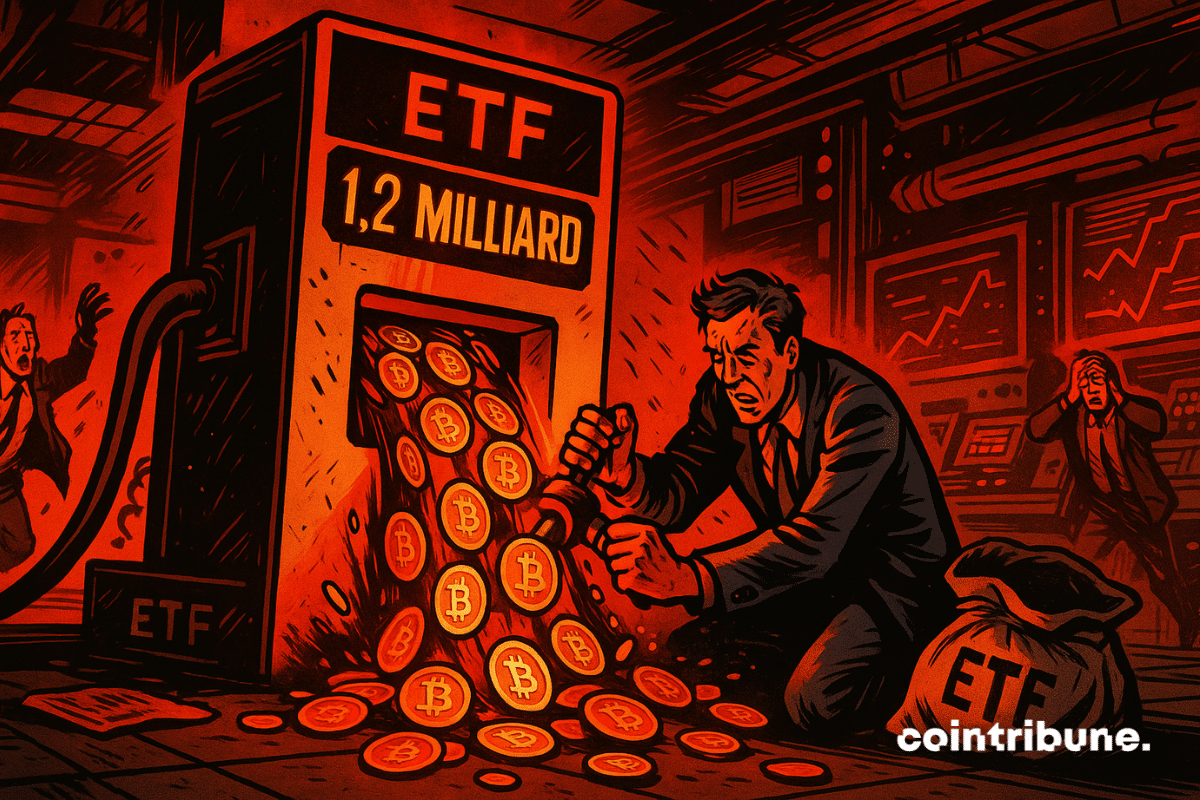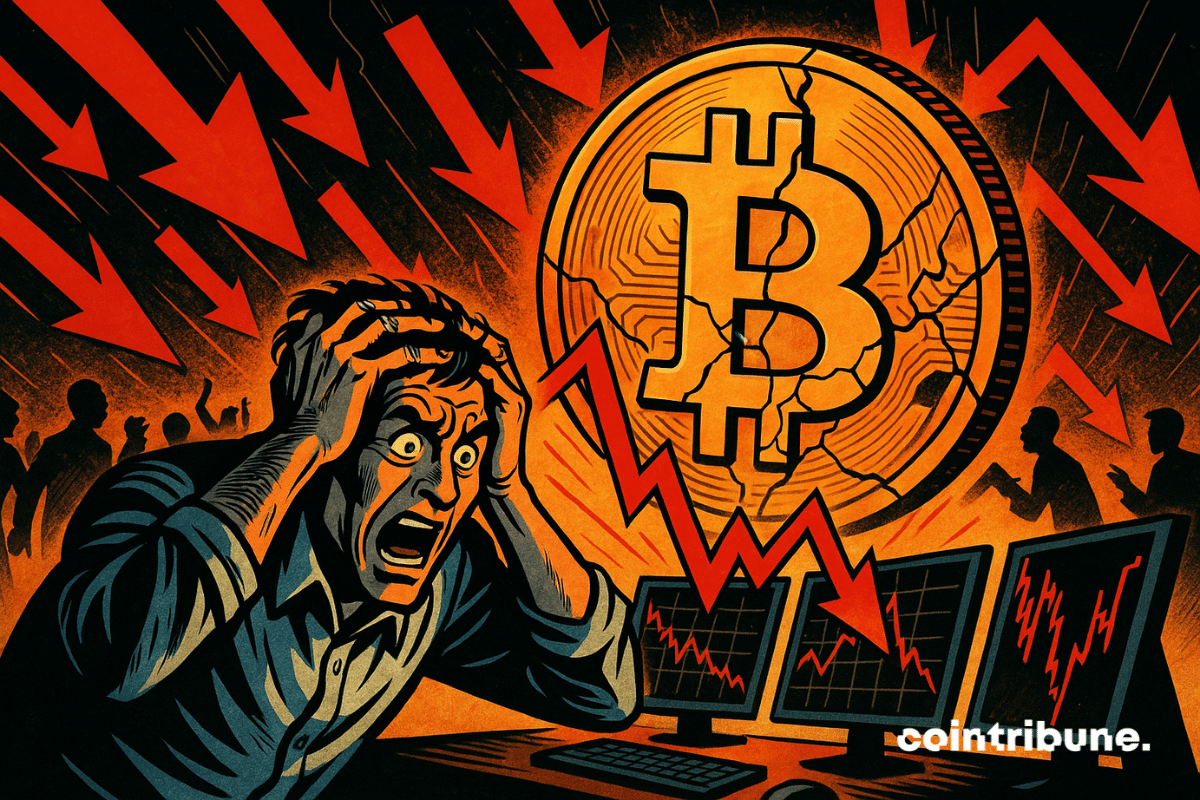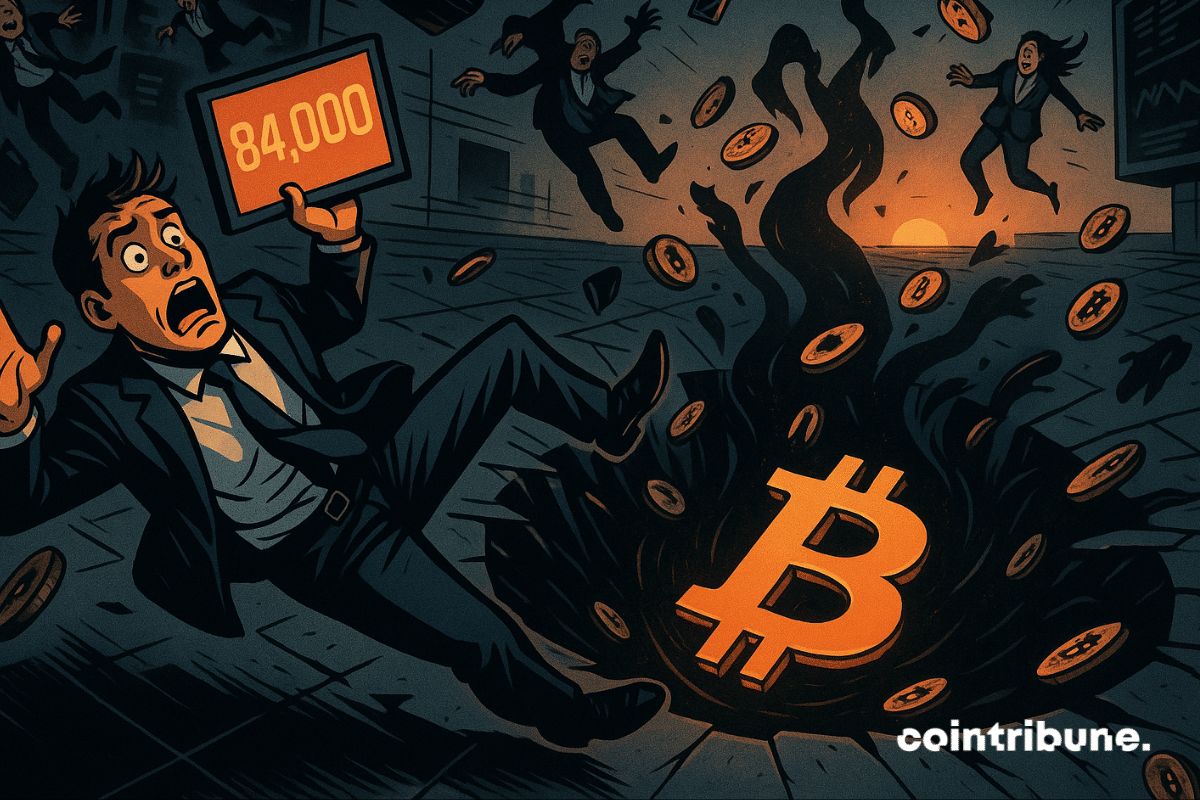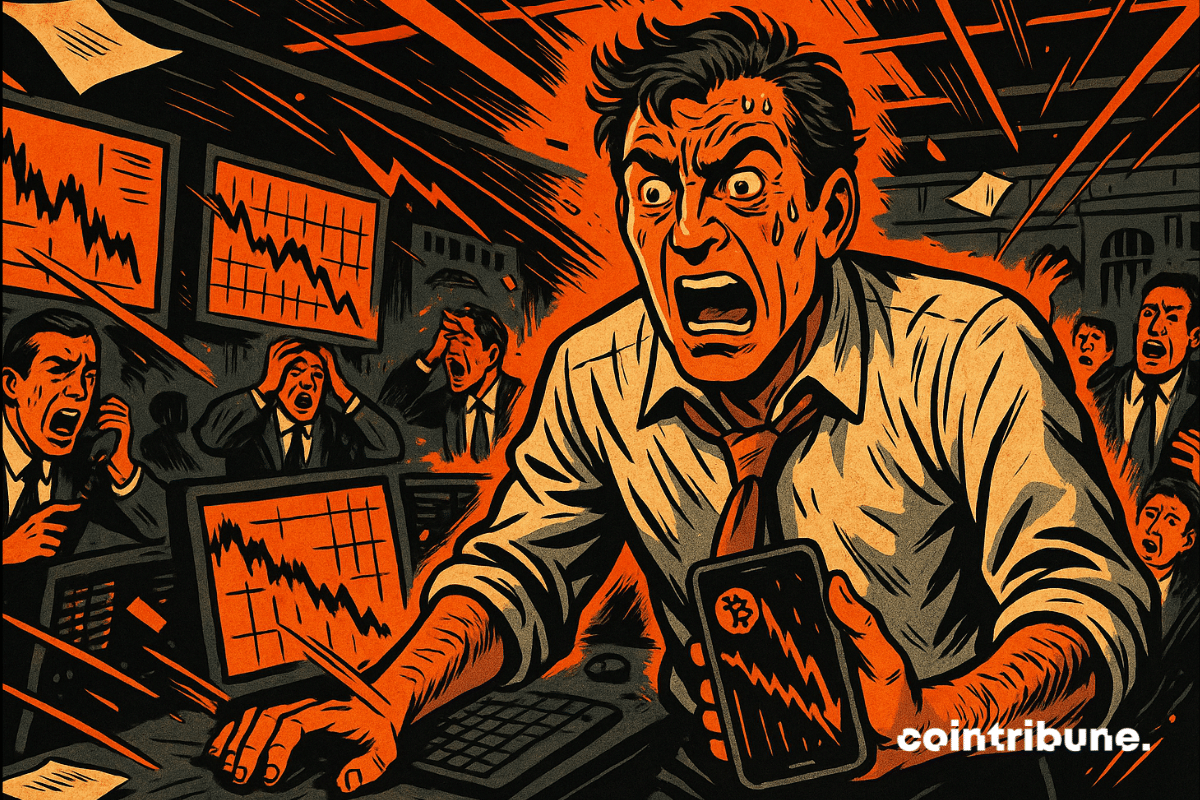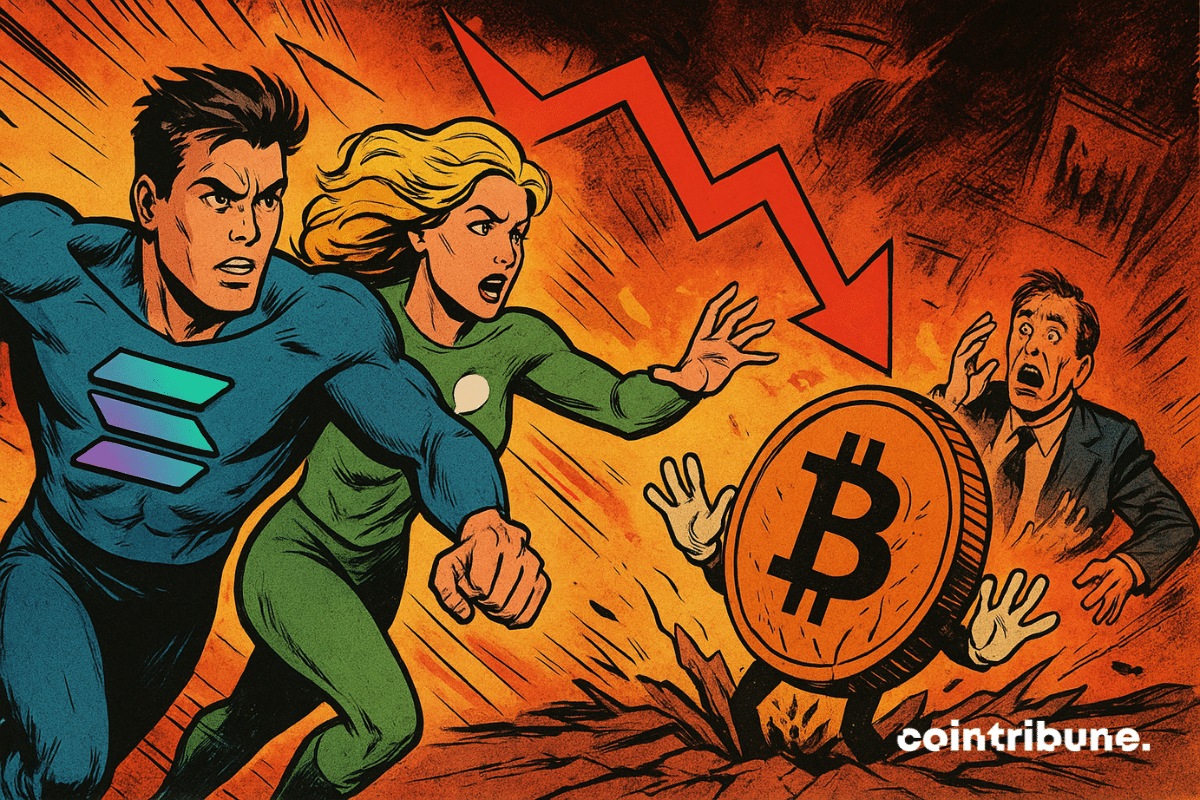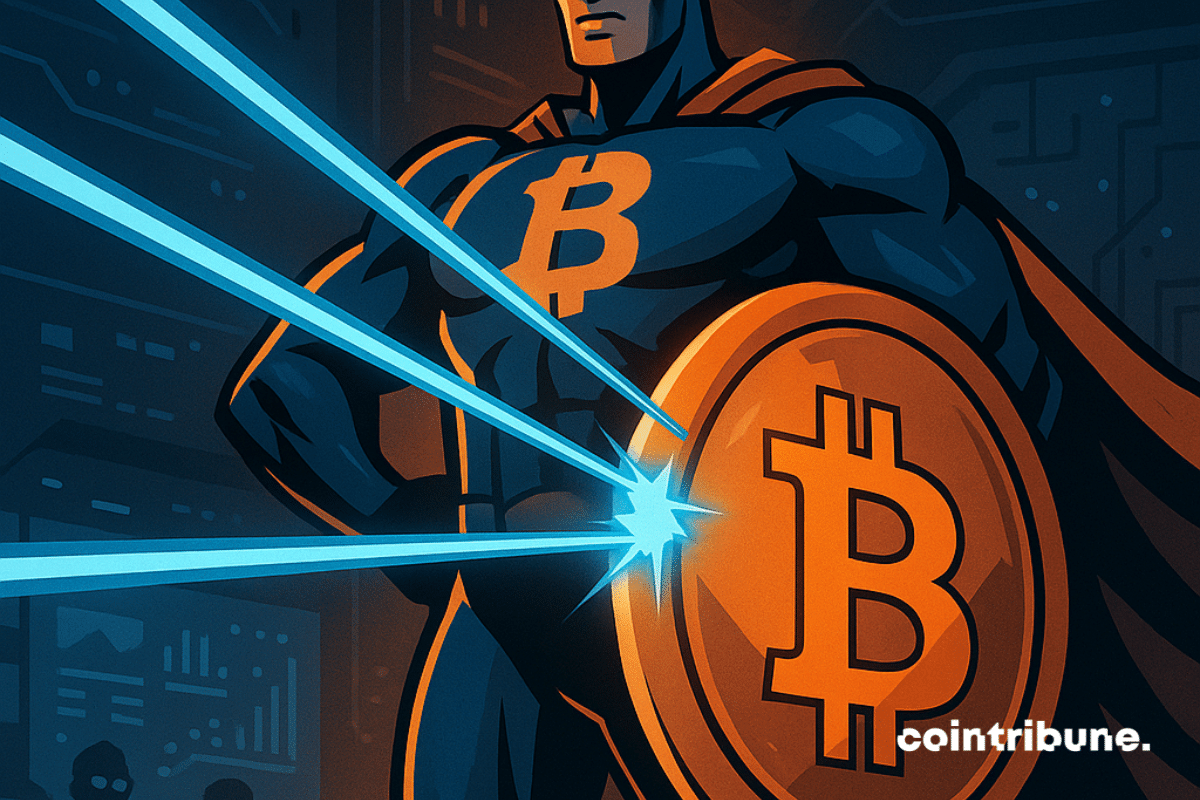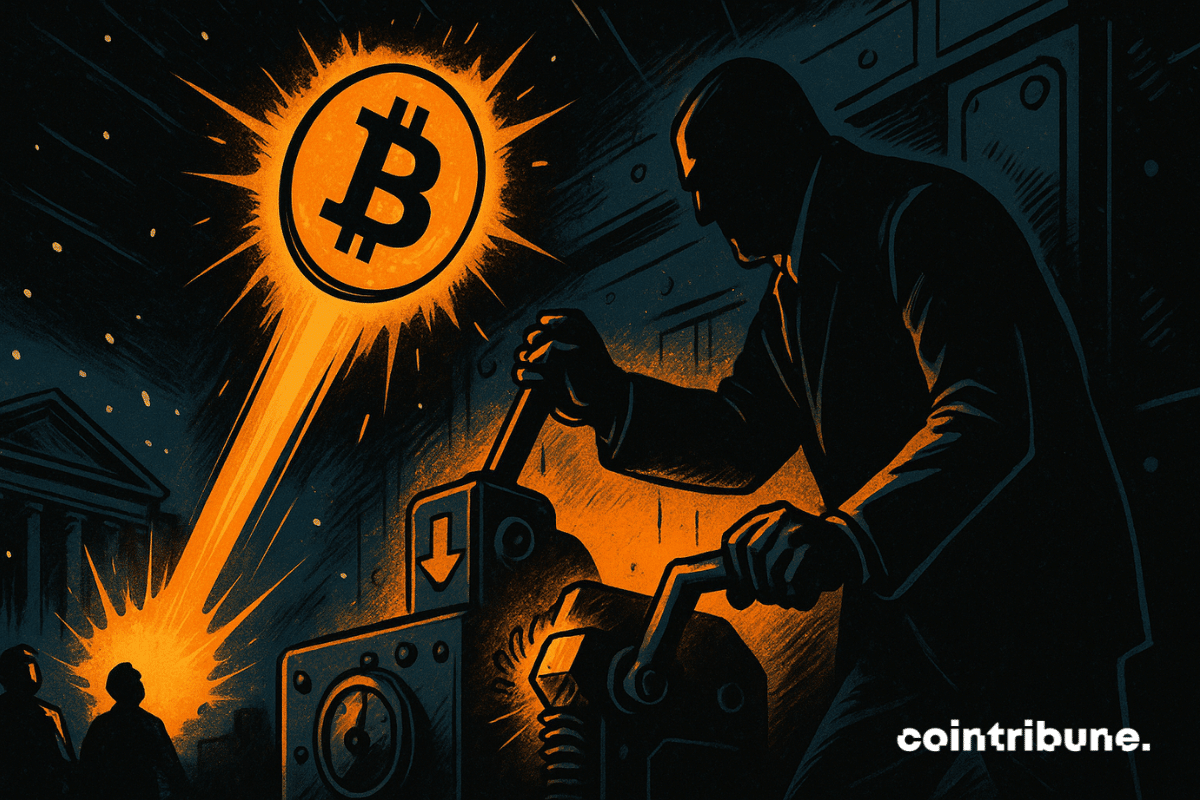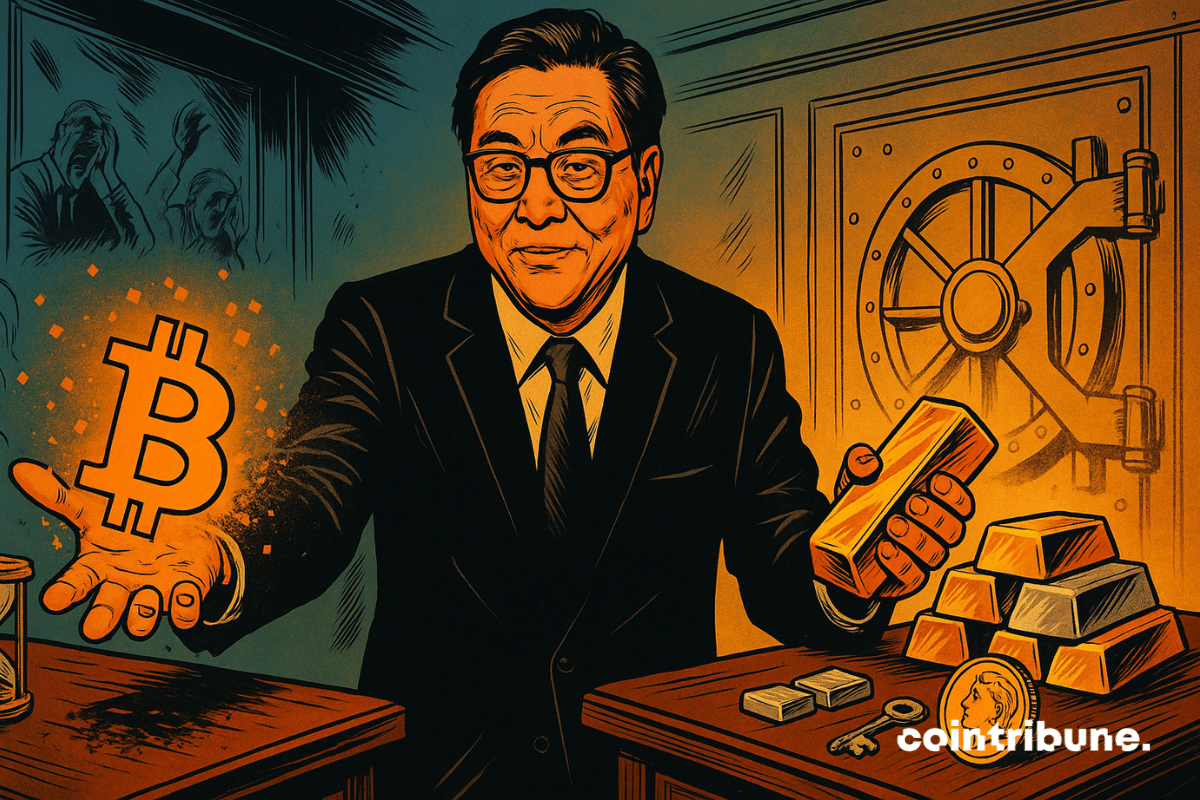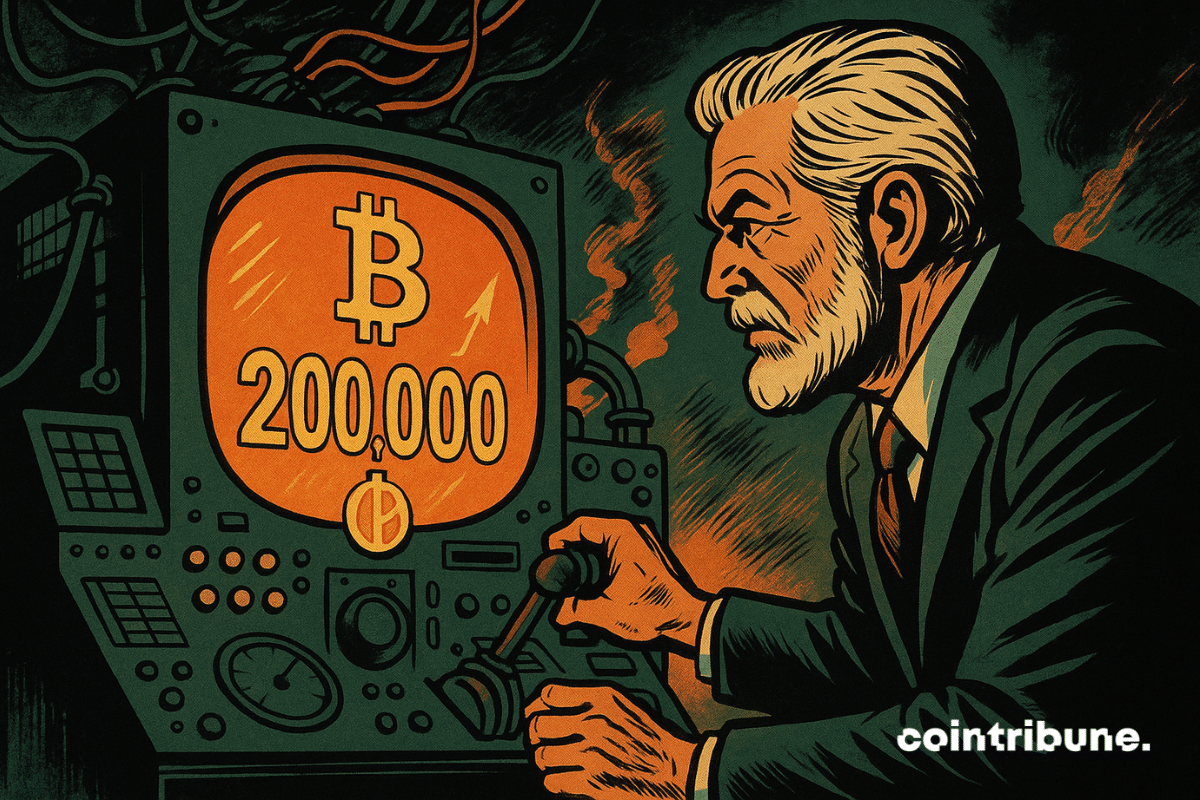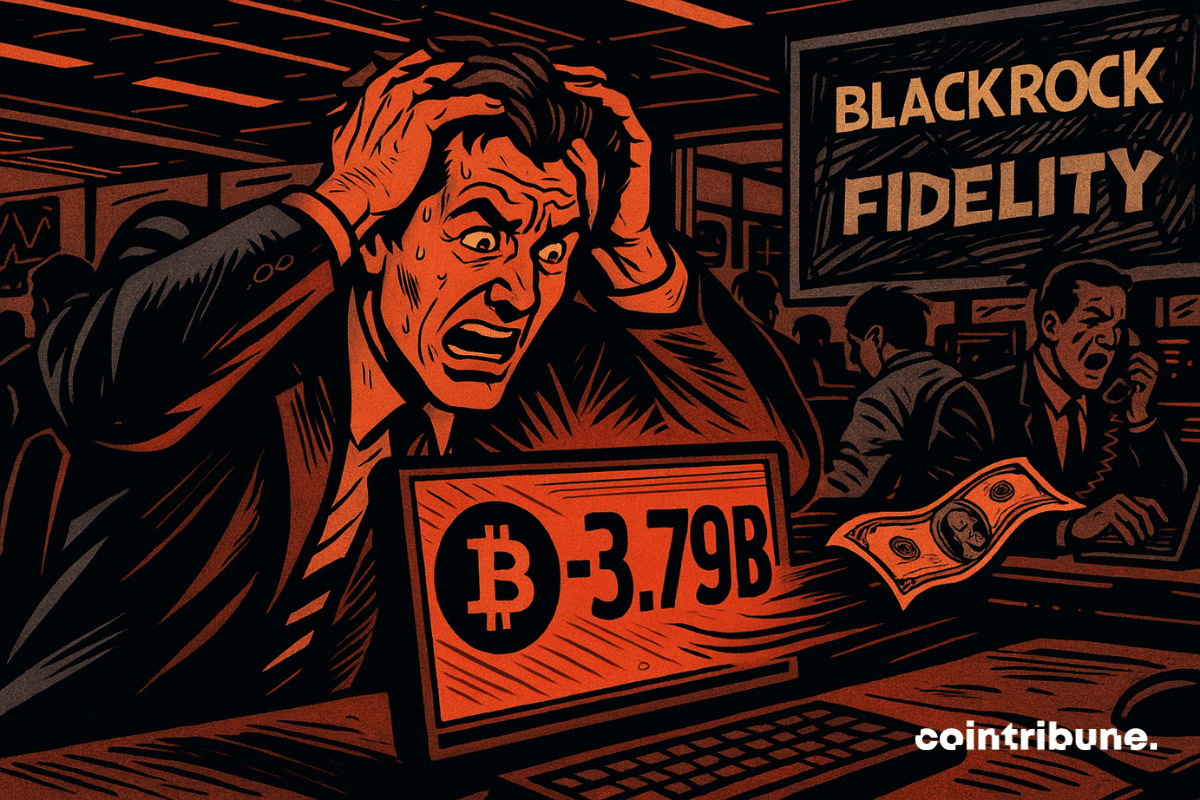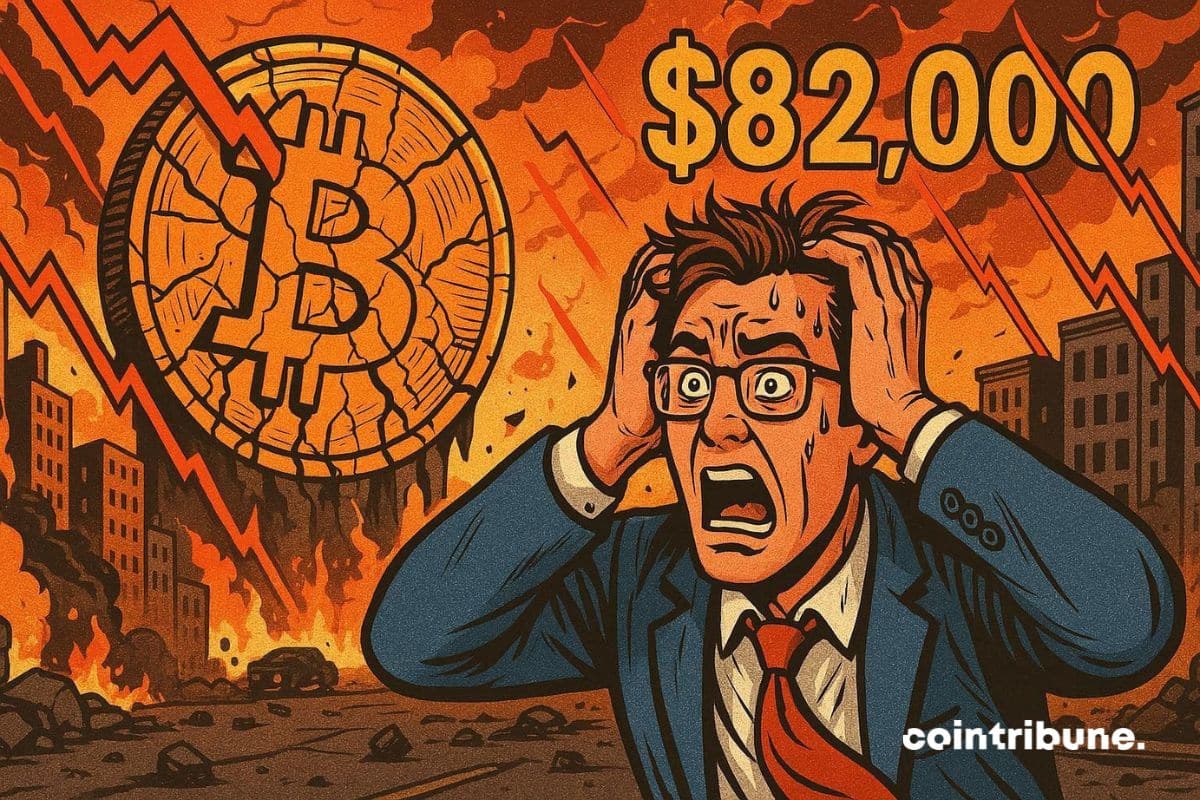Behind the new name The Bitcoin Society (TBSO), Eric Larchevêque orchestrates the transformation of a small listed Parisian company, Société de Tayninh, into a hybrid vehicle: both a "bitcoin treasury company" and a network company focused on individual financial sovereignty. In other words: a MicroStrategy the French way, but grafted onto an activist community.
Theme Bitcoin (BTC)
As bitcoin tries to recover after its plunge below $81,000, Strategy, one of the largest institutional accumulators of BTC, has chosen silence. For the first time in weeks, the company did not release any announcement on Monday regarding its weekly acquisitions. An unusual behavior that raises many questions.
While bitcoin briefly rises above $86,000, a dissonance persists: the US dollar remains strong. This strength, usually unfavorable to risky assets, has not hindered BTC's upward momentum. Is it a real sign of recovery or a mere technical rebound masking underlying weaknesses?
Banned but coveted, China plays it cool and reconnects its bitcoin machines. Silence in Beijing, but business is booming in provinces where electricity costs nothing.
Bitcoin is navigating turbulent waters as November comes to an end. After a sharp drop below $81,000, the cryptocurrency attempts a timid recovery around $88,000. Traders are now scrutinizing technical signals while a "death cross" looms over daily charts. The Thanksgiving week promises its share of macroeconomic turbulence. Will BTC manage to reclaim $100,000?
JPMorgan Chase closes the accounts of Jack Mallers, CEO of Strike, without explanation! This new case of crypto debanking reveals a worrying trend... Why are crypto ecosystem participants excluded from the traditional banking system?
For over a decade, Bitcoin has remained frozen in apparent simplicity. Its Script language, deliberately limited, has sacrificed expressiveness on the altar of security. Meanwhile, Ethereum, Solana, and Avalanche have captured hundreds of billions of dollars in liquidity by offering programmable smart contracts. But this expressiveness came with vulnerabilities: reentrancy, unpredictable execution costs, critical attacks.
Crypto markets are showing signs of strain as several key measures of capital flow turn negative. Recent data points to a broad cooling of demand across Bitcoin ETFs, stablecoins, and corporate treasury activity. And as expected, this trend has raised concerns that the rally’s core drivers have stalled.
Ark Invest, led by Cathie Wood, has increased its stakes in crypto-linked companies, including Coinbase and Circle, while revising Bitcoin’s 2030 target to $1.2M.
The crypto community is igniting after the announcement that Strategy and other cryptocurrency-holding companies could be excluded from major stock indices. A boycott movement is gaining momentum. Will JP Morgan be the next target of the Bitcoin revolution?
Bitcoin as a global payment rail? For BlackRock, this is clearly not the core issue. For now, clients of the world’s largest asset manager mainly play the digital gold card, not the everyday currency one.
As the crypto market approaches 3 trillion dollars again, bitcoin grabs attention by crossing 86,000 $, driven by an increase of over 3%. This rebound fuels projections of a move towards 88,640 $, but the setup remains fragile. Between immediate resistance zones and hesitant volumes, the bullish scenario remains conditional. Technical signals are accumulating, but only a clear breakthrough of key thresholds could confirm a sustainable recovery.
Market conditions continue to tighten around Bitcoin as traders confront nearly $2 billion in leveraged long positions that could be liquidated if prices fall to $80,000. Recent swings reveal how fragile derivative exposure has become, with borrowed positions at risk of automatic liquidation during sharp price moves.
Strong inflows returned to major crypto ETFs at the end of the week after several days of uncertainty across digital asset markets. Bitcoin, Ether, and Solana products all posted gains on Friday, hinting at early stabilization following sharp swings and heavy withdrawals earlier in the week. Sentiment remains cautious, but renewed allocations to key products suggest that some investors are selectively re-entering the market.
Bitwise sees Bitcoin, Ethereum, XRP and Uniswap as the stars of 2026. Between major technological updates, institutional adoption and expected rebounds, these cryptos could explode at any moment. Discover the price forecasts for December 2025 and the winning strategies to profit before everyone else.
Long considered the spearhead of institutional adoption, Bitcoin ETFs have just experienced one of their worst weeks since their launch. With massive outflows and a tense market, confidence is wavering. Such a situation reminds us that in the crypto universe, nothing is ever fully guaranteed, not even the most solid financial products.
A solo Bitcoin miner defied the odds to secure a rare block, earning 3.146 BTC worth around $266,000.
Market pressure has surged across the crypto sector. Even so, analysts say the recent wave of Bitcoin ETF outflows reflects short-term trading adjustments rather than a meaningful pullback by institutional participants. Recent redemptions, combined with forced selling in spot markets, have put added stress on prices, but experts maintain that broader demand for Bitcoin remains intact.
Bitcoin fell to $80,000 as crypto funds saw massive outflows, but analysts point to improving liquidity that could spark a December rally.
The Bitcoin Fear & Greed index has just plunged into an extreme fear zone, a rare signal that has often preceded spectacular rebounds. With critical levels at $80,000, the market is at a decisive turning point. Should you buy now or fear a new wave of selling?
U.S. stocks and crypto tumbled as investor fear surged, with the S&P 500 losing $2 trillion and Bitcoin falling below $85K.
Sharp volatility hit the crypto market on Friday after Bitcoin briefly plunged on Hyperliquid. The sudden drop triggered millions in liquidations and sharply raised investor anxiety. Prices bounced back quickly, but market data indicate that conditions remain fragile and pessimism is deepening among traders.
While Bitcoin and Ethereum endure massive withdrawals, two newcomers shake up the scene. Solana and XRP ETFs accumulate nearly 900 million dollars in net inflows despite a market in full collapse. Are we witnessing the emergence of a new hierarchy in the crypto ecosystem?
The Bitcoin Core audit everyone was demanding has finally taken place and it found almost nothing to criticize. For software securing a network worth hundreds of billions, this is no small detail. It is a strong signal, both for cypherpunks and institutional desks accumulating BTC behind the scenes.
While bitcoin continues to decline, a signal from the U.S. Federal Reserve briefly reversed sentiment. Within hours, the odds of a rate cut in December nearly doubled, reigniting hopes of monetary support. In a climate of uncertainty, this reversal fuels speculation of a possible rebound. Investors, until now on the defensive, are now watching the Fed as a key factor for crisis exit.
Robert Kiyosaki sold his bitcoins, cashing in 2.25 million dollars. An unexpected decision, while he predicted a BTC at $250,000 by 2026. In a declining market, this withdrawal questions the real drivers of his strategy.
Bitmain, Chinese giant of Bitcoin mining, raises concerns in Washington. A secret investigation reveals fears of espionage and sabotage via these ultra-dominant machines. At stake: American security, the interests of the Trump family, and the future of crypto-mining.
While the crypto industry oscillates between volatility and hopes of a rally, Peter Brandt, a respected figure in technical analysis, cools down the enthusiasm. Unlike the euphoric forecasts of some sector leaders, he believes that bitcoin will not cross $200,000 before the third quarter of 2029. Such a projection questions the solidity of short-term bullish scenarios and invites a reconsideration of the real pace of market cycles.
Uptober fizzled out, November bleeds: $3.79 billion gone, Bitcoin stumbles, Solana rejoices… What if the BlackRock giant just pressed where it hurts?
Bitcoin has just plunged to $82,000, triggering $2 billion in liquidations and record ETF outflows. Between widespread panic and hidden opportunities, this historic crisis could change everything. Decode the causes, risks, and winning strategies to not miss the rebound — or avoid the trap.
